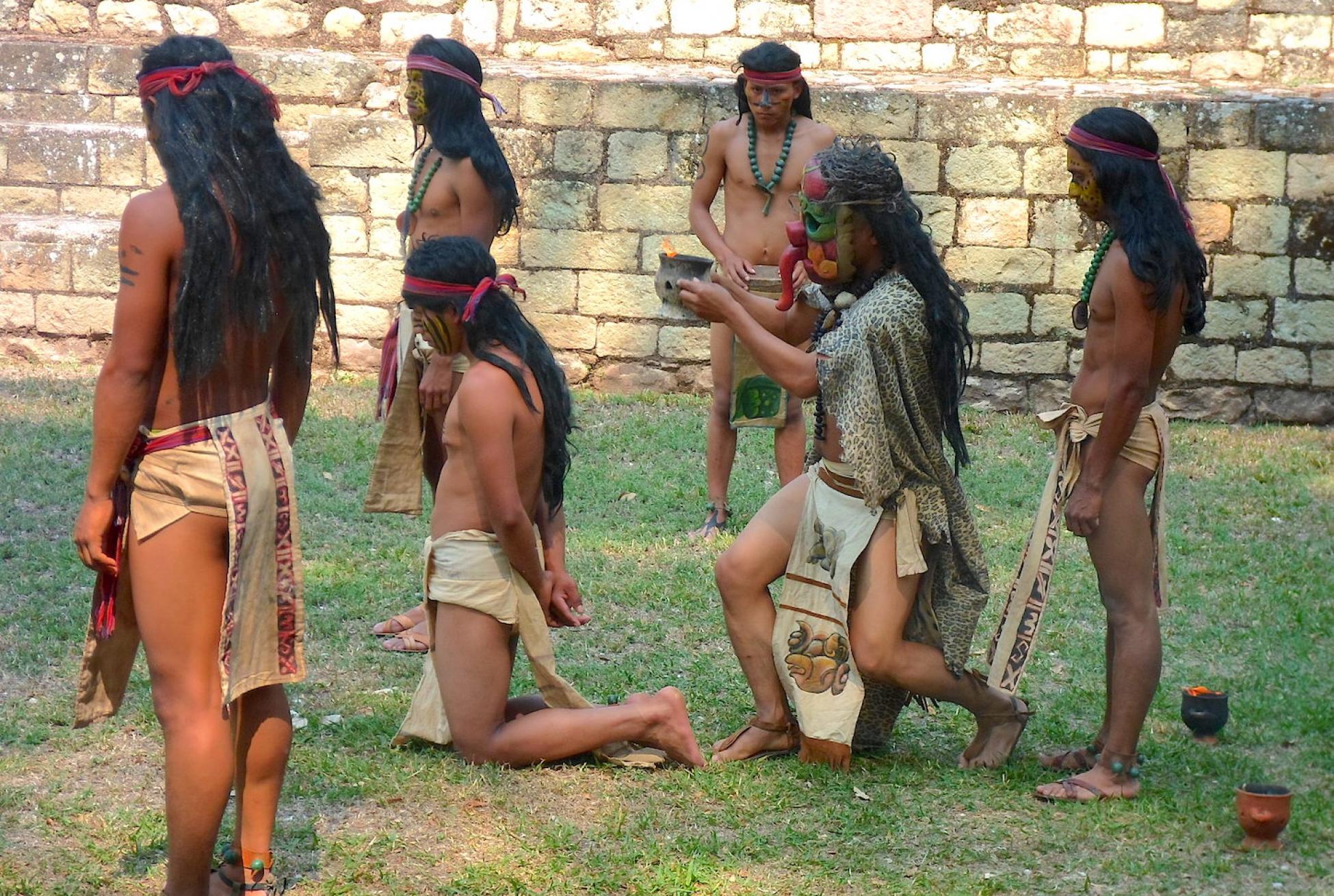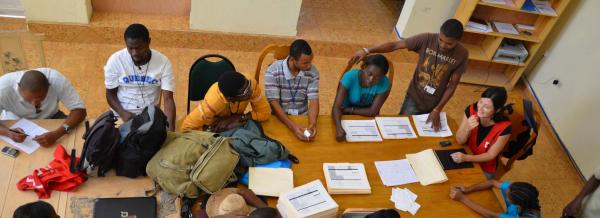Late in April, I woke up early. This was a special occasion—delegates from Cuso International, my host organization, were visiting Copan to review the progress of their partnership with OCDIH (a local NGO), as well as the work that I’m conducting as a volunteer abroad.
Rather than being nervous, though, I was extremely excited about furthering the dialogue between OCDIH, Cuso and the leaders of the Maya Chorti communities. My mission was simple; I wanted to present an overview of the various issues faced by the indigenous communities in Copan and the work that OCDIH and CONICH are undertaking in assisting local communities. CONICH is the primary organization that represents the federation of the Maya Chorti Indigenous people in Honduras. I was especially keen to coordinate a meeting between the Cuso leadership and CONICH, hoping to bring the two organizations closer together.
We first met with the Cuso delegates in Copan Ruinas early in the morning, before heading to CONICH's office, where our Canadian guests met with representatives from the Maya Chorti nation. I was looking forward to this meeting because it served as a platform for constructive dialogue between OCDIH, Cuso and the Maya Chorti communities in supporting indigenous people's rights. Working in international development, direct connections between international NGOs and local communities are a rare opportunity. This disconnect can sometimes be difficult to mend given the bureaucracy and rigid hierarchies that often define many international organizations.
Putting Cuso directly in touch with the local communities enables me to better communicate the various aspect of my work with the Maya Chorti nation, and with our international partners. Issues regarding land rights, women’s rights and education were among the most pressing concerns that were covered during our session with CONICH. At another meeting, they had a chance to learn more about OCDIH's work, including access to justice, women's rights and right to sexual health.
Trust and positive relations is the cornerstone of effective development work in Indigenous communities.
But the day wasn't all about sitting in meetings. We travelled to the Maya Chorti village village of Pintada, where we shared a traditional meal at the local school and met with the teachers and their students, who performed traditional dances and songs in the local language. The Chorti language is actively being promoted by CONICH and there are courses in the local school that teach the Maya children their native language. However, due to years of oppression, the use of Chorti language continues to diminish in the communities, especially since the government has not been doing enough to help preserve Indigenous cultures and languages.
The hospitality and the participation of the children of the community throughout our visit was truly inspiring. Through such heartfelt connections we aim to develop positive relations based on friendship and trust. This is essential, as trust and positive relations is the cornerstone of effective development work in Indigenous communities. The long history of colonization and imperialism that has affected the indigenous nations in this region necessitates caution and sensitivity when working with the communities as an outsider. You have to be accepted by the community and develop trust before any positive collaboration can take shape.
The day ended with a theatrical performance by the Maya Chorti youth, who re-enacted a Mayan ceremony amidst the Mayan ruins of Copan. Once one of the greatest cultural centres of ancient Mayan civilization, the site still holds sacred ceremonial importance for the modern Maya Chorti nation. It is here that the Maya Chorti priests continue to conduct ceremonies from time to time. In the subtropical forest, with exotic colourful birds flying above us, we were seated on the ancient staircases surrounding a large field. Though many of the structures have been reclaimed by nature you can tell this ancient royal city was once host to magnificent gatherings and ceremonies. I was dazzled by the dedication and the wonderful re-enactment of an ancient Mayan ceremony involving a sacrifice of corn and blood to the ancient gods of the Mayan underworld. Working with the youth to present future cultural programs will be a project worth exploring in the near future.
When I went home that night after a long day, I was tired. But in the end, it was worthwhile—the hard work brought Cuso, OCDIH and CONICH closer together. I hope that this will be an initiation for closer collaboration on future projects and a new beginning for Cuso international, CONICH and OCDIH in developing positive connections.
Add this article to your reading list




